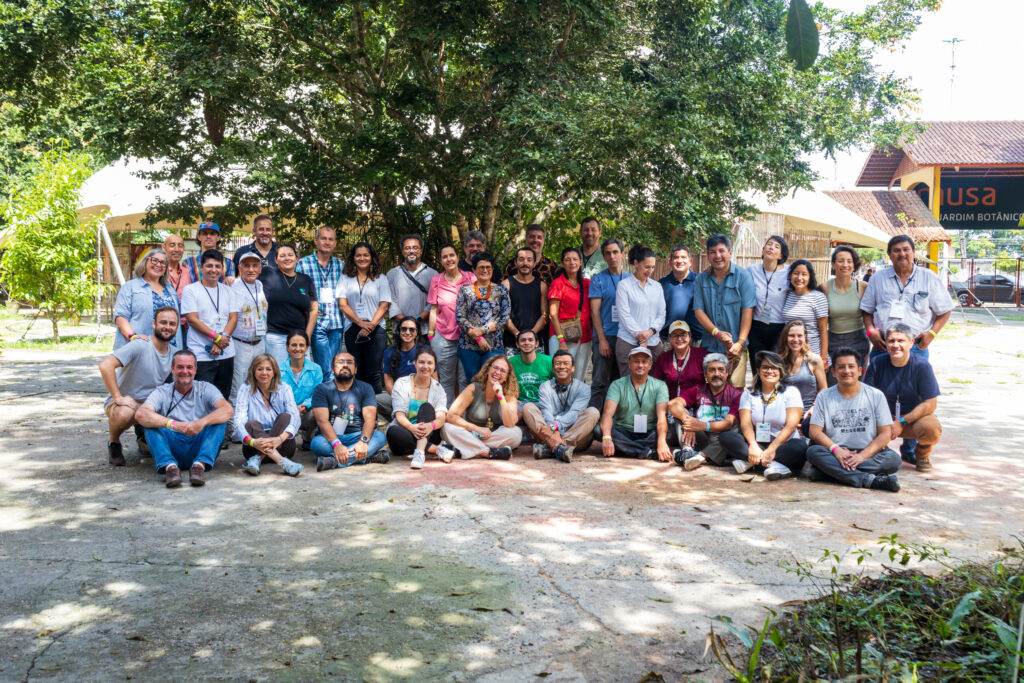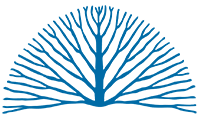The History of the Amazon Waters Alliance
We are a group of 29 organizations committed to the conservation of the Amazon Basin and the well-being of its inhabitants. Our story began with the Amazon Waters Initiative and the Citizen Science Network for the Amazon, two parallel initiatives working toward the conservation of aquatic ecosystems and the generation of knowledge through citizen science, respectively. The Amazon Waters Alliance was consolidated and formalized in May 2023, merging both efforts under a unified governance agreement.

Representatives of the Amazon Waters Alliance partner organizations during a meeting in Manaus, Brazil, in 2024.
The Alliance Building Process
We reflect on the milestones and key events in our history, from both the Amazon Waters Initiative and the Citizen Science Network, which formed the foundation of what is now the Amazon Waters Alliance.
June 2016 |
International Conference in Lima, where the 2016 Amazon Waters Declaration was signed. |
April 2017 |
Launch of the Citizen Science for the Amazon (CCA) Project (under the conceptual framework of Amazon Waters), focused on understanding and conserving aquatic ecosystems through citizen participation and open science. |
April 2018 |
Second Partner Meeting in Iquitos, Peru, to discuss the implementation of the Citizen Science project. |
February 2019 |
Project Planning Workshop in Leticia, where the Citizen Science Network for the Amazon was formalized. |
June 2020 |
Ordinary General Assembly of the CCA Network held virtually, where the Statutes were approved and the Steering Committee was elected. In 2020, virtual meetings and webinars were held due to COVID-19 restrictions which made in-person events, international and national travel, and fieldwork in the Amazon impossible. |
May 2021 |
Start of the revitalization and strategic planning process of Amazon Waters to increase its impact in the Amazon Basin. |
February 2022 |
Meeting of the Citizen Science Network for the Amazon in Quito to address programmatic and governance challenges. |
October 2022 |
Initial discussions began about the possibility of integrating the two initiatives. The Network’s Extraordinary Assembly authorized the proposal of integration with the Amazon Waters Steering Committee. |
December 2022 |
The Network’s Extraordinary Assembly approved the integration of the Network and Amazon Waters under the name Amazon Waters Alliance. |
May 2023 |
The Network’s Extraordinary Assembly approved the governance documents and formalized the Alliance. It was decided that the Network’s partner organizations would automatically become partner organizations of the Amazon Waters Alliance. Read more here.
|
August 2023 |
The Amazon Waters Alliance Partner Meeting and Assembly where held. And, the first Steering Commitee of the Amazon Waters Alliance was elected. |
Partners of the Amazon Waters Alliance to May 2024.
This process has been made possible thanks to the support of the Gordon and Betty Moore Foundation since 2016, and, starting in 2021, with the support of the United States Agency for International Development (USAID).
AN ARCHIVE OF OUR HISTORY: THE ACHIEVEMENTS OF THE CITIZEN SCIENCE NETWORK FOR THE AMAZON
See also some illustrative results of the Citizen Science Network for the Amazon project:
- WCS secured additional support for technology development and on-the-ground implementation of citizen science projects for fish, water and environment, and community science in schools, with the objective of generating data on aquatic ecosystem preservation objectives throughout the Amazon (to be implemented until October 2021).
- CLO supports the development and implementation of Ictio.org with the Macaulay Lab and eBird infrastructure which is also at the disposal of Ictio.
- ProNaturaleza provided infrastructure for the implementation of a “community laboratory of ichthyology and aquatic biodiversity” (LACIBIO) and a boat to promote citizen science in the Machiguenga communities of the Urubamba River, Cusco region.
- UNIR submitted a proposal to USAID PEER in conjunction with several Network partners to standardize fisheries monitoring in the three Madeira Basin countries. Although the proposal was not accepted, the collaborative initiative remains.
- WCS Bolivia submitted a proposal to IAI in conjunction with several Network partners about resilient fisheries management in the Madeira Basin. Although the proposal was not accepted, the collaborative initiative remains.
- FIU supported its efforts and involvement in the Network with institutional funds and also with funds from existing agreements with the Tinker Foundation and the MacArthur Foundation that also support studies about rivers in the Andean-Amazon region.
COVID-19 placed significant constraints and challenges especially on the implementation of field activities during 2020 (at least). In this regard, the Network Management Team is in the meantime focusing its efforts on activities and products that can be generated remotely.


